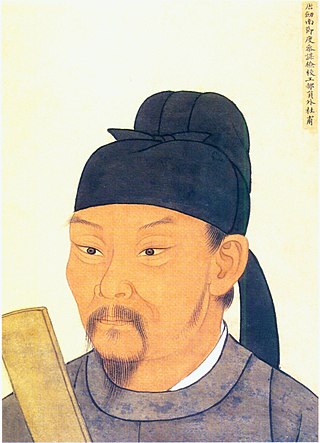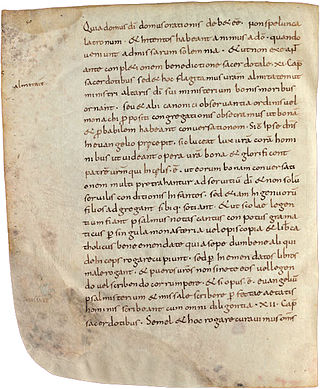The 800s decade ran from January 1, 800, to December 31, 809.
Year 800 (DCCC) was a leap year starting on Wednesday of the Julian calendar, the 800th year of the Common Era (CE) and Anno Domini (AD) designations, the 800th year of the 1st millennium, the 100th and last year of the 8th century, and the 1st year of the 800s decade. It was around this time that the Anno Domini calendar era became the prevalent method in Europe for naming years, so from this time on, the years began to be known as 800 and onwards.
The 830s decade ran from January 1, 830, to December 31, 839.
The 790s decade ran from January 1, 790, to December 31, 799.
The 780s decade ran from January 1, 780, to December 31, 789.
The 770s decade ran from January 1, 770, to December 31, 779.
The 760s decade ran from January 1, 760, to December 31, 769.
The 740s decade ran from January 1, 740, to December 31, 749.

Year 806 (DCCCVI) was a common year starting on Thursday of the Julian calendar, the 806th year of the Common Era (CE) and Anno Domini (AD) designations, the 806th year of the 1st millennium, the 6th year of the 9th century, and the 7th year of the 800s decade.

Year 770 (DCCLXX) was a common year starting on Monday of the Julian calendar. The denomination 770 for this year has been used since the early medieval period, when the Anno Domini calendar era became the prevalent method in Europe for naming years.

Year 789 (DCCLXXXIX) was a common year starting on Thursday of the Julian calendar. The denomination 789 for this year has been used since the early medieval period, when the Anno Domini calendar era became the prevalent method in Europe for naming years.

Year 791 (DCCXCI) was a common year starting on Saturday of the Julian calendar. The denomination 791 for this year has been used since the early medieval period, when the Anno Domini calendar era became the prevalent method in Europe for naming years.

Year 793 (DCCXCIII) was a common year starting on Tuesday of the Julian calendar. The denomination 793 for this year has been used since the early medieval period, when the Anno Domini calendar era became the prevalent method in Europe for naming years.

Year 796 (DCCXCVI) was a leap year starting on Friday of the Julian calendar, the 796th year of the Common Era (CE) and Anno Domini (AD) designations, the 796th year of the 1st millennium, the 96th year of the 8th century, and the 7th year of the 790s decade. The denomination 796 for this year has been used since the early medieval period, when the Anno Domini calendar era became the prevalent method in Europe for naming years.

Year 718 (DCCXVIII) was a common year starting on Saturday of the Julian calendar, the 718th year of the Common Era (CE) and Anno Domini (AD) designations, the 718th year of the 1st millennium, the 18th year of the 8th century, and the 9th year of the 710s decade. The denomination 718 for this year has been used since the early medieval period, when the Anno Domini calendar era became the prevalent method in Europe for naming years.

700 (DCC) was a leap year starting on Thursday of the Julian calendar, the 700th year of the Common Era (CE) and Anno Domini (AD) designations, the 700th year of the 1st millennium, the 100th and last year of the 7th century, and the 1st year of the 700s decade. As of the start of 700, the Gregorian calendar was 3 days ahead of the Julian calendar, which was the dominant calendar of the time.

Year 910 (CMX) was a common year starting on Monday of the Julian calendar.
Liutperga (Liutpirc) (fl 750 - fl. 793) was a Duchess of Bavaria by marriage to Tassilo III, the last Agilolfing Duke of Bavaria. She was the daughter of Desiderius, King of the Lombards, and Ansa.

The Battle of Kopidnadon or Kopidnados took place in September 788 between the armies of the Abbasid Caliphate and the Byzantine Empire. The Abbasid army launched an invasion of Byzantine Asia Minor, and was confronted by a Byzantine force at Kopidnadon. The resulting battle was an Abbasid victory. Among the Byzantine losses was a certain Diogenes, who is identified by some scholars with the probable original source for the literary hero Digenes Akritas.
In late 788 or early 789, the Byzantine Empire invaded southern Italy in an effort to detach the kingdom of the Lombards from the Frankish domination and restore the exiled king Adelchis. The expeditionary army, supported by the Sicilian theme, was defeated in a major battle by a combined force of Lombards and Franks under Duke Grimoald III of Benevento.











